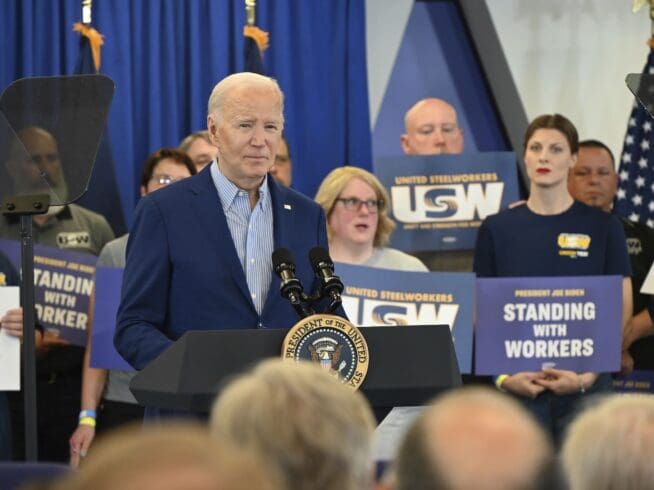What Michigan Gov. Whitmer’s Department of Education is doing to help teachers
Teacher shortages are a problem everywhere, but Michigan has introduced several initiatives to address them.

Michigan is a leader among states in addressing the teacher shortage problem, according to a July report from the U.S. Department of Education.
States across the nation are dealing with a lack of qualified teachers. According to data published independently in August by researchers at Kansas State University and the University of Pittsburgh, the shortage is getting worse in many of them.
Michigan, though, is something of an outlier in this data. According to the researchers, the state has just 3.31 teacher vacancies per 10,000 students, compared to 30.93 in nearby Wisconsin. The state with the worst shortage, Mississippi, has 58.67 teacher vacancies per 10,000 students.
In many cases, teacher shortages result in school systems being forced to hire underqualified teachers who have higher rates over turnover.
Under Democratic Gov. Gretchen Whitmer, the Michigan Department of Education has been successful at mitigating teacher staffing problems by prioritizing teacher hiring, increasing teacher pay, improving enrollment levels in educator preparation programs, and expanding teacher apprenticeship programs, according to the Department of Education report.
“This report proves that Michigan is leading the nation as one of the best states to be a teacher,” Whitmer said in a July statement after the report was released. “To improve student outcomes, we must support the education professionals who help our kids thrive.”
The U.S. Department of Education report said Michigan has shown exceptional success in returning to the educator staffing levels it had before the COVID-19 pandemic and is one of the few states to show a small increase over its pre-pandemic numbers.
Sean Kottke, interim assistant director of the Office of Educator Excellence at the Michigan Department of Education, told the American Independent Foundation that while he can’t definitively point to any one thing that has caused the increase in staffing, there are plenty of factors that may have contributed.
One is the fact that Michigan’s 2023-2024 budget includes record levels of funding per student and more than $63 million for local school districts to use to pay teachers.
Even more impactful, Kottke reckons, are the state’s efforts in educator preparation.
The Department of Education report showed Michigan has increased participation in educator preparation programs every year from the 2016-2017 school year through 2021-2022, the last year for which data was available.
Kottke oversees the department’s educator preparation unit. He said that over the last few years, his office has increased the number of funding streams to ease the pathway to becoming a teacher in Michigan.
One of these streams is Michigan’s “Grow Your Own” staffing grants, which provide funding for Michigan school systems to prepare any noncredentialed staff, including custodians, bus drivers, and anyone else employed in a school setting who is not a teacher and wants to obtain teaching credentials.
The grants, which Kottke said have provided nearly $100 million to Michigan school systems over the last three years, can also be used by current teachers to obtain other credentials in fields such as special education or English as a second language.
Another stream is the state’s teacher cadet programs, which encourage students in grades 6 through 12 to become educators, as well as a similar explorer program for schools that don’t have the funding for a full career technical education teacher cadet program.
These have created “a ready market of interested young people who want to become teachers,” Kottke said.
In a time of increasing politicization of public education in Michigan and beyond, Kottke said, it remains extremely important to prioritize education funding.
“If we don’t have a robust education system, we don’t have an informed citizenry,” Kottke said. “We need not just a quality education system, we need an educative education system. … What you are experiencing now should prepare you for what comes next.” There are many pathways for adults to succeed in the United States, but none of them are attainable without a strong public school system, Kottke said.
“If we don’t have a robust public education system that guarantees a level of literacy, of numeracy, of critical thinking, then none of those other pathways are going to get populated,” he said.
Updated 9/19/2023 at 1:02 p.m. to correct the job title of Sean Kottke.
Published with permission of The American Independent Foundation.




